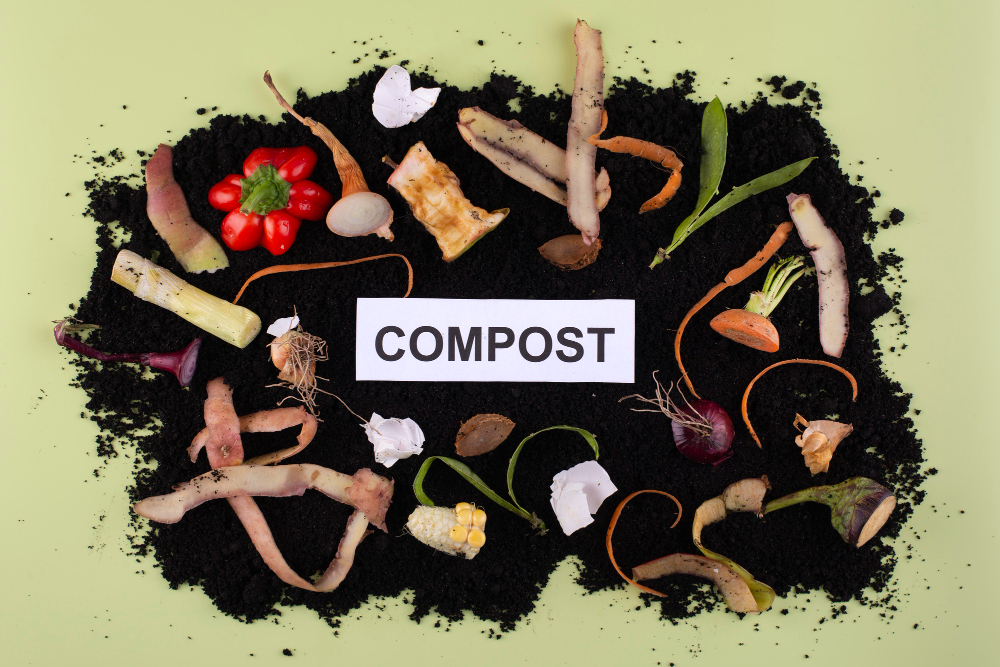Composting is the process of breaking down the organic matter known as green waste, leaves, food waste in the presence of air & water, using microorganisms & small insects present in nature for weeks or months. The end product is called compost which is rich in readily usable plant nutrients forming a part of the healthy soil.

While Composting at Home, Organisms Require Four Conditions to Create a Compost:
- Carbon – from brown organic matter like dried leaves, paper, sawdust, Chopped straw and small twigs, etc
- Nitrogen – from vegetable & fruit waste, coffee grounds, Plant cuttings/Hedge clipping, Tea Bags, Coffee Grounds, Crushed Egg Shells, Flowers, etc
- Oxygen – from air
- Water in right amount
Here are the 6 Steps to make Organic Compost from your Kitchen Waste given below:
Steps to make Organic Compost from your Kitchen Waste
01. Separate your edible kitchen waste like fruit peels, vegetable peels, small amounts of wasted cooked food in a kitchen waste basket or a container.
02. Collect the dry organic matter like dried leaves, sawdust in another kitchen waste basket or a container.
03. Take a large trash bin or an earthen pot & drill 4 to 5 holes around the container at different levels to let air come inside.
04. Line the bottom of the large trash bin or a container with a layer of soil (5 cm thick).
05. Now start adding food waste in layers by alternating wet waste (food scraps, fruit & vegetable peels) with dry waste (sawdust, straw, dried leaves).
06. Cover this large trash bin container with a plank of wood or a plastic sheet to help to retain moisture & heat.
Keep a dish below the pot to collect the excess moisture that gets released. This water is precious & can be used as fertiliser for plants. If you are keeping the pot outdoors directly on the grass, then the water will directly go to the soil and fertilise it!
After every few days, use a rake to give the compost pile a quick turn to provide the aeration. If you found the compost pile is too dry, you can sprinkle some water so that it gets moisture.
Within 2 to 3 months, your compost pile should start forming organic compost that is dry, dark brown, powdery & smells like earth. There are also ready-made composting kits available for those who want to overcome initial resistance to starting composting.
Those who have larger garden space in your backyard you can dig a hole & do the same process. Keeping the compost pit covered is a good idea to keep away pests & flies.
With the time & little patience, composting at home will become the second nature for you!
What a green & natural way to live – This will lead to a good sanitation, cleanliness & hence an ideal waste management practice. This is most environment-friendly. It also provides manure for your plants & kitchen garden.
